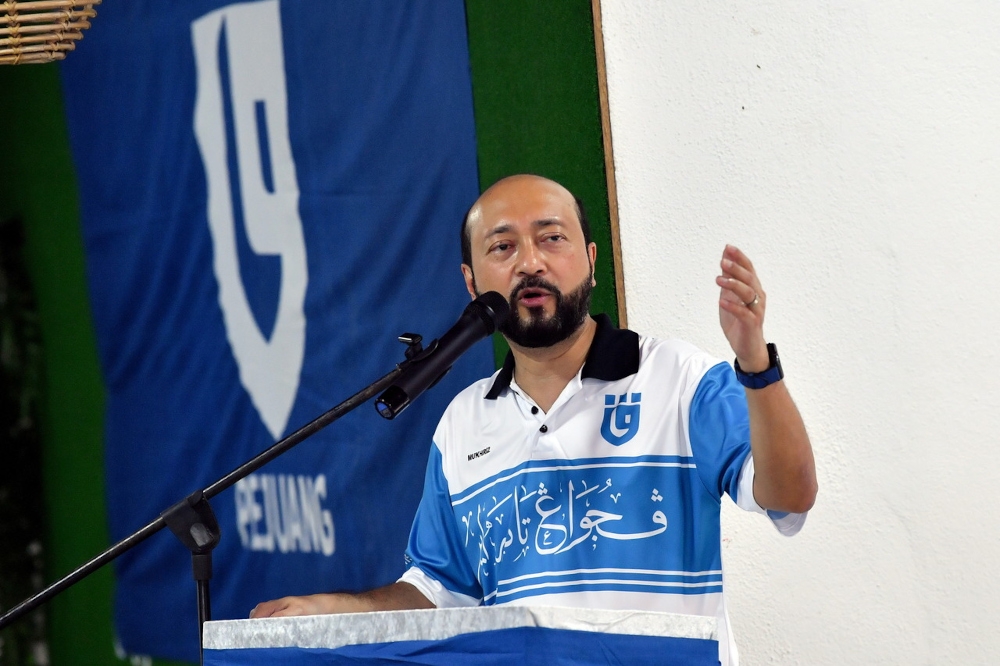KUALA LUMPUR, March 26 — Several political analysts polled by Malay Mail have not written off Parti Pejuang Tanahair after it severed ties with right-wing coalition Gerakan Tanah Air (GTA) and Perikatan Nasional (PN) subsequently rejected its attempt to join the federal Opposition coalition.
The analysts said parties and politicians these days could remain relevant even with serious setbacks as there were more political niches they could fill, more so with six state elections coming.
“In the fragmented political landscape of Malaysia nowadays, there is hardly any end of the road for any party or politician, as by clever manoeuvring, not the least through forging alliances or harping on certain issues or seizing opportunities in certain democratic trends, they could engineer political comebacks and even victories in no time,” senior fellow at the Singapore Institute of International Affairs Oh Ei Sun told Malay Mail.
On March 20, PN secretary-general Datuk Seri Hamzah Zainuddin said the coalition’s supreme council decided to reject Pejuang’s application to join but did not give a reason.
Pejuang secretary-general Datuk Amiruddin Hamzah then said the decision was disappointing and his party still intended to contest in the state elections this year alone.
“For the foreseeable future, it does not appear that they have many choices other than to go it alone in a few seats,” Oh said.
Oh also said the chances of Pejuang winning the seats are unlikely but necessary to contest in order to show face to remain remotely relevant.
Senior fellow at the Nusantara Academy for Strategic Research Azmi Hassan said that Pejuang still could make amends for the loss and embarrassment suffered in the 15th general election, when all of its 125 candidates including founder Tun Dr Mahathir Mohamad who contested using Pejuang’s logo, were defeated and lost their deposits.
In order to achieve that, Azmi said that Pejuang should focus on contesting in one state alone in the upcoming polls. He suggested this should be Kedah, due to the popularity of the party president Datuk Seri Mukhriz Mahathir there, who was a former menteri besar.

“The problem with Pejuang’s strategy in GE15 is that they choose to contest in the constituency they’re not familiar with and know they can’t win. But they just contest anyway. Now they want to join PN in order to avoid any split of votes and I think that’s very fair because both PN and Pejuang are targeting the same group of voters, which is the Malay voters.
“But the problem is Pejuang has nothing to show that they can attract Malay voters and the GE15 result has been devastating for them,” he said.
“There is a chance now for Pejuang to demonstrate they can attract Malay votes in the upcoming polls. But in order to do that they need to be selective in their selection of seats. They need to contest in Kedah only to show they can split the votes and this will bring a message to PN that it is their loss for not accepting Pejuang in their coalition,” he added.
According to University of Malaya Centre for Democracy and Elections (UMcedel) socio-political analyst Awang Azman Awang Pawi, however, Pejuang should just consider not contesting and taking a sabbatical in the upcoming state polls.
“This is because they don’t stand a chance when parties under the Unity Government or PN contest for the same seats that Pejuang is planning to contest.
“If Pejuang suffered a further loss in these upcoming elections then it will bring more shame to the party and will damage their performance and reputation. Therefore, it is better for them to rest for a while and gather support and strength,” he said.
Pejuang was founded in 2020 by Tun Dr Mahathir Mohamad and members of his faction who were sacked from Parti Pribumi Bersatu Malaysia, another party he also established after leaving Umno over his disagreement with the Malay nationalists at the time.
Dr Mahathir and several loyalists have since left Pejuang, allegedly over a disagreement with the party’s direction under its president, Mukhriz, the youngest son of the former prime minister. Many of them, including Dr Mahathir, joined the Malay supremacist Parti Bumiputera Perkasa Malaysia (Putra).





















